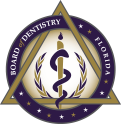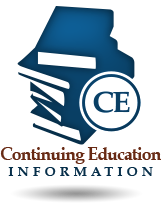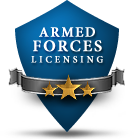Click on the appropriate tab below to see the Initial Licensing Requirements, Process, Fees, Statutes and Administrative Rules for Sedation Permit for Pediatric Conscious Sedation.
A permit shall be issued to a dentist authorizing the use of pediatric conscious sedation at a specified practice location or locations on an outpatient basis for dental patients provided such dentist:
- Has received formal training in the use of pediatric conscious sedation. This formal training program shall be sponsored by or affiliated with a university, teaching hospital or part of the undergraduate curriculum of an accredited dental school; and
- Is certified by the institution where the training was received to be competent in the administration of pediatric conscious sedation. This certification shall specify the type, the number of hours, the number of patients treated and the length of training. The minimum number of didactic hours shall be sixty, which must include four (4) hours of airway management. Clinical training shall include personal administration for at least twenty patients including supervised training, management of sedation, clinical experience and demonstrated competence in airway management of the compromised airway. The program must certify that three (3) hours of clinical training was dedicated to hands-on simulated competence in airway management of the compromised airway; and
- Personal Administration of Pediatric Conscious Sedation: The board shall award credit towards the required 20 dental patients, if and only if, the applicant is responsible for and remains with the patient from pre-anesthetic evaluation through discharge. The evaluation and responsibilities include the following: pre-anesthetic evaluation, induction, maintenance, emergency, recovery, and approval for discharge. The board will not award credit for dental anesthetic procedures performed that are greater than or less than the administration of pediatric conscious sedation; or
- The applicant demonstrates that the applicant graduated, within 24 months prior to application for the permit, from an accredited post-doctoral pediatric residency. The pediatric residency anesthesia requirements must meet the minimum number of sedation cases as required in subsection (2).
- Is competent to handle all emergencies relating to pediatric conscious sedation. A dentist utilizing pediatric conscious sedation shall maintain a properly equipped facility for the administration of pediatric conscious sedation, staffed with supervised assistant/dental hygienist personnel, capable of reasonably handling procedures, problems, and emergencies incidental thereto. The facility must have the equipment capability of delivering positive pressure oxygen ventilation. Administration of pediatric conscious sedation requires at least two individuals: a dentist, and an auxiliary trained in basic cardiac life support. It shall be incumbent upon the operating dentist to insure that the patient is appropriately monitored.
A dentist utilizing pediatric conscious sedation and his assistant/dental hygienist personnel shall be certified in an American Heart Association or American Red Cross or equivalent agency sponsored cardiopulmonary resuscitation course at the basic life support level to include one person CPR, two person CPR, infant resuscitation, and obstructed airway with a periodic update not to exceed two years. Starting with the licensure biennium commencing on March of 2000, a dentist and all assistant/dental hygienist personnel shall also be trained in the use of either an Automated External Defibrillator or a defibrillator and electrocardiograph as part of their cardiopulmonary resuscitation course at the basic life support level. In addition to CPR certification, a dentist utilizing pediatric conscious sedation must be currently trained in ACLS (Advanced Cardiac Life Support), PALS (Pediatric Advanced Life Support), or a course providing similar instruction which has been approved by the Board. An entity seeking approval of such a course shall appear before the Board and demonstrate that the content of such course and the hours of instruction are substantially equivalent to those in an ACLS or PALS course.
Dentists permitted to administer pediatric conscious sedation may administer nitrous-oxide inhalation conscious sedation.
Dentists permitted to administer conscious sedation may administer pediatric conscious sedation.
Applications will be reviewed by board staff and staff will notify the applicant in writing of any deficiencies. Complete applications are sent to the chairman of the Anesthesia Committee for review. Once the application has been approved by the chairman, staff will notify the applicant in writing of the current application status and will provide the applicant’s information to an anesthesia consultant contracted with the board to evaluate applicants and perform office inspections. The consultant will contact the applicant to set up a time to observe the administration of an anesthetic to a patient in the dental office as well as conduct an inspection of the office for required drugs and equipment.
Once the consultant has returned the paperwork indicating a passing inspection, staff will add the anesthesia qualification to the dental license and prepare a letter to the licensee to use as proof of permit until the licensee receives the updated dental license.
Certified check or money order should be made payable to the Florida Department of Health.
| TOTAL FEE | $300.00 |
Click on Chapter or Section Number to View
Florida Statutes
Section 466.017: Prescription of drugs; anesthesia.
Florida Administrative Codes
Rule 64B5-14: Anesthesia





